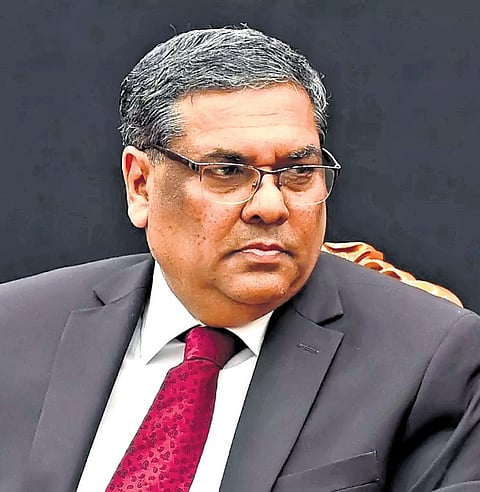Sanjiv Khanna to be sworn in as 51st Chief Justice of India today
NEW DELHI: Justice Sanjiv Khanna, who has been part of the Supreme Court’s several landmark judgments — including scrapping of electoral bonds scheme and the upholding of the abrogation of Article 370 — will be sworn in as the 51st Chief Justice of India (CJI) on Monday.
President Droupadi Murmu will administer the oath of office to him at the Rashtrapati Bhavan in a ceremony scheduled for 10 am.
Justice Khanna will succeed Justice DY Chandrachud, who retired on Sunday after working for two years. Justice Khanna is set to retire on May 13, 2025, after six months in office, upon reaching the age of 65.
On October 17, the CJI recommended to the Centre that Justice Khanna, the seniormost Supreme Court Judge, be appointed as his successor.
Justice Khanna was enrolled as an advocate with the Bar Council of Delhi in 1983. He has regularly appeared in the High Court and tribunals in diverse fields.
He had also argued a number of criminal cases in the Delhi HC as an Additional Public Prosecutor, and on appointment by the Court as amicus curiae. For about 7 seven years, he served as the senior standing counsel for the Income Tax Department in the Delhi HC. In 2004, he was appointed as the Standing Counsel (Civil) for the National Capital Territory of Delhi.
Elevated as an additional judge of the Delhi High Court in 2005, he was made a permanent judge in 2006. Justice Khanna, who led the top court bench in many cases, had delivered various judgments, including that of granting interim bail to Arvind Kejriwal.
Justice Khanna was born on May 14, 1960. He studied law at the Campus Law Centre, Delhi University. After graduating, he enrolled as an advocate in the Bar Council of Delhi in 1983. In 2004, he was appointed as Delhi’s Standing Counsel for civil law matters at the Delhi HC.
On 25 June 2005, he was appointed as an Additional Judge of the Delhi High Court and became a permanent judge on February 20, 2006.
117 verdicts, 456 benches
On 18 January 2019, Justice Khanna was elevated to the Supreme Court. He has authored 117 judgments and has been a part of 456 benches so far. In 2023, Justice Khanna delivered a concurring opinion in a five-judge Bench decision that upheld the validity of the abrogation of Article 370. On October 24, the Centre notified Justice Khanna’s appointment as the next CJI.

